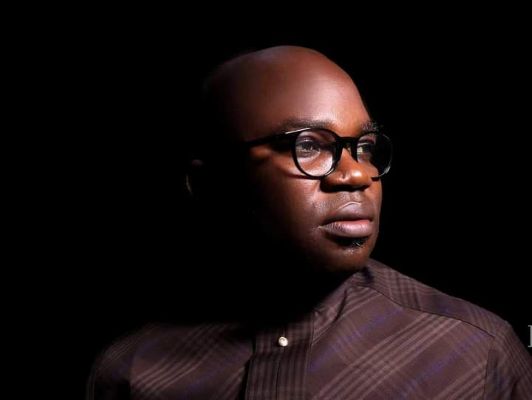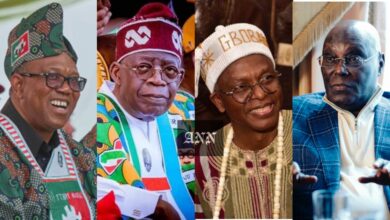Can Nigeria, Africa take advantage?, by Enyinnaya Appolos |

The last has not been heard in the ever-unfolding drama of the US-China trade war. China appears more prepared than ever to challenge not just the American market, but also European and other Western markets. The battlefield has shifted beyond tariffs and sanctions. Now, the fight for dominance has reached the polished floors of luxury fashion houses, the neon-lit tech showrooms, and the glittering world of global consumerism. This time, China isn’t just reacting — it is revealing. And the story it’s telling is one that many in the West would prefer to keep hidden.
In a calculated and brutally effective move, China has taken to its domestic and international social media platforms to expose an inconvenient truth: that most of the world’s most prestigious luxury brands — yes, the same ones that parade down Parisian runways and deck the wardrobes of Hollywood’s elite — are actually made in China.
The myth of Western luxury is being unmasked. For decades, global luxury brands have built their reputations on the illusion of exclusivity, heritage, and European craftsmanship. Think of the labels: Gucci, Prada, Louis Vuitton, Hermès, Rolex — and even high-end electronics brands like Apple. Their image has long been cloaked in the aura of European ateliers or American ingenuity. But pull back the curtain, and you’ll find factories in Shenzhen, Guangzhou, Zhejiang, and Suzhou producing the handbags, watches, shoes, and inner components of luxury electronics that the West markets as bespoke and “handcrafted.”
China, in what now appears to be a masterstroke of trade war strategy, is pulling the rug from beneath the feet of Western consumer propaganda.
Videos, factory footage, production line images, and verified employee testimonies are being circulated across platforms like Weibo, Douyin (China’s version of TikTok), Xiaohongshu, and translated for Western platforms like Instagram, TikTok, and X (formerly Twitter).
The message is clear: “You love your $3,000 handbag? It was made in our industrial backyard — at a cost that would make your eyes water.”
This revelation is not accidental. It is strategic, intentional, and political. As the United States piles on tariffs, restricts Chinese tech giants, and attempts to decouple from Chinese manufacturing, Beijing is reminding the world of a truth it has long tried to ignore — it’s been China all along.
China is the world’s factory. And not just for cheap plastic toys or budget electronics — it’s for luxury, for prestige, for elegance.
For years, the West has benefitted from China’s vast, skilled, and cost-effective labor force while simultaneously demonising the country on the global stage. Now, as trade tensions escalate, China is flipping the narrative and exposing the quiet hypocrisy of the luxury world.
Luxury’s dirty secret is now out in the open. Imagine paying thousands of dollars for a so-called “Italian” bag that was stitched, glued, and packaged by a Chinese worker earning less than 3% of the final sale price. That’s no longer speculation — it’s documented evidence being shared virally. The tags may read “Made in Italy,” but many components are shipped from and often assembled in China before being sent to Europe for “finishing touches.”
Also Read
This reminds me of the story of a typical Aba shoemaker — one who labors through the night crafting footwear, only to have his work passed off under someone else’s name, simply because of the prestige attached to foreign brands. Thanks to the former Governor of Abia State, Dr. Okezie Ikpeazu, this complex of inferiority was challenged head-on. As governor, he not only actively promoted made-in-Aba products but also inspired Aba craftsmen to proudly own their brands. Today, several Aba-based fashion and tailoring brands are making waves across Nigeria and the African continent.
For some luxury labels, “Made in China” once carried a branding curse. Not anymore. People are now asking questions. Gen Z, millennials, and even many Gen X consumers are wondering why they should spend thousands on a label when they can get the same quality — or even better — from locally made alternatives without the markup or false mystique.
In Nigeria, it was once a source of pride to flaunt Western luxury attire. But today, thanks to the efforts of leaders like Okezie Ikpeazu and Governor Chukwuma Soludo in marketing made-in-Nigeria brands, Nigerian and African fabrics are taking center stage. Our local fashion industry is thriving. Members of the Nigerian elite now confidently wear beautifully tailored outfits made at home — proudly African, proudly Nigerian.
This Chinese exposure is more than an economic rebuttal — it’s a potent tool of soft power. In undermining the Western luxury narrative, China is reshaping global consumer consciousness. The message it sends is simple and striking: “We don’t just make your cheap goods. We make your best.”
And in this age of digital transparency, the world is listening. Hashtags like #MadeInChina, #LuxuryExposed, and #GlobalFactory are trending. Influencers and whistleblowers are amplifying the message, further eroding the credibility of Western luxury marketing.
This shift also reflects a rise in Chinese national pride. No longer content to be the world’s silent labor force, the Chinese government and its citizens are openly celebrating their industrial capacity. They’re not hiding anymore. In fact, they’re daring the world to match their quality.
The implications for global trade are far-reaching. This is not merely an attack on branding — it is a bold chess move in the geopolitics of trade. By discrediting the West’s monopoly on the luxury narrative, China is positioning itself not just as a manufacturer, but as an originator of value.
For African nations like Nigeria, this moment is a wake-up call. We must rethink our long-standing association of quality with the West. We must begin to evaluate products based on value, function, and authenticity — not merely origin. If China can produce both the most affordable goods and the most luxurious, the playing field has truly changed.
The US-China trade war has now evolved into a battle of narratives — and China appears to be winning this round with surgical precision. By stripping luxury brands of their mythos and revealing the bare bones of global manufacturing realities, Beijing has done something more disruptive than tariffs or sanctions — it has told the truth.
A truth that was always there, just hidden beneath layers of marketing and myth.
As global consumers, we must now ask: What are we really paying for when we buy luxury? Is it true craftsmanship, or just a clever illusion? Because if it’s the latter, then the world has just woken up — and it’s staring straight into the heart of Shenzhen.
Maybe Donald Trump’s return to the White House is for a purpose. But the bigger question remains: Can Nigeria and Africa take advantage of this moment?
. Appolos, a seasoned journalist, writes from Abuja.
Post Views: 13






